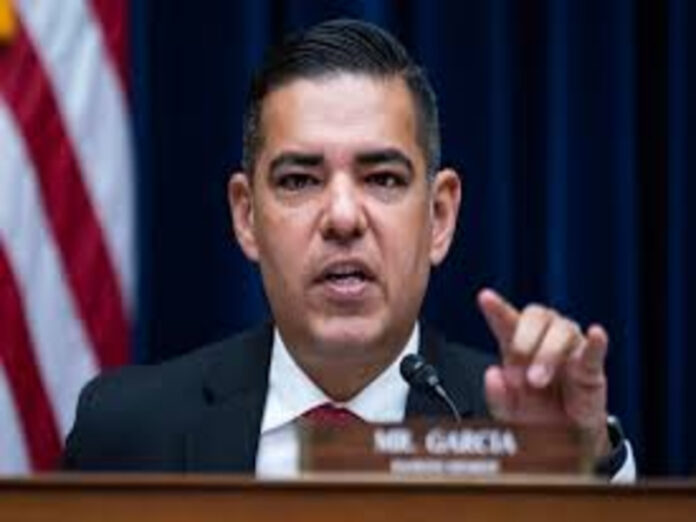Garcia’s Plan To Publicly “Track” Federal Immigration Agents Via The House Committee On Oversight & Reform Website Is Rhetorical Showmanship, Lacks Legal Footing, & Faces Almost Certain Defeat In Congress
Thursday, October 23, 2025, 1:30 P.M. ET. 4 Minute Read, By Jennifer Hodges, Political Editor: Englebrook Independent News,
WASHINGTON, DC.- U.S. Representative Robert Garcia (D-Calif.) has unveiled what he calls a “Master ICE Tracker” to be hosted on the House Oversight Committee’s website, claiming the tool will publicly monitor and expose activities of the U.S. Immigration and Customs Enforcement and federal immigration enforcement agents. According to his announcement, the tracker would collect and publish data about agent operations, transparency lapses, and alleged misconduct.
But closer examination and legal realities suggest the proposal is little more than political posturing. Experts point out that Congress does not have the authority to compel Immigration and Customs Enforcement or its agents to provide the kind of detailed, live-tracking data Garcia implies; furthermore, the House Oversight Committee lacks independent law-enforcement or data-collection powers equal to executive‐branch agencies. With Republicans firmly opposed and legal constraints looming, the tracker appears destined to remain a press release rather than a working tool.
Rhetoric vs. Reality;
Garcia has positioned himself as a staunch advocate of government reform and public accountability, and as the top Democrat on the Oversight Committee, he holds a prominent platform. But the tracker proposal goes well beyond typical oversight initiatives. It demands real-time visibility into ICE activities, including asset deployment, arrest operations, and internal investigations, matters that are highly classified or protected by executive privilege and law-enforcement secrecy.
Multiple legal analysts note that any attempt by Congress to publish detailed operational intelligence of Immigration and Customs Enforcement would face serious constitutional and statutory barriers. The executive branch has broad discretion in immigration enforcement, and disclosure mandates are limited. Moreover, the Oversight Committee’s ability to enforce compliance is constrained when it lacks majority control or the power to enforce subpoenas in the minority.
Likely Legislative Fate;
Even assuming bipartisan interest, the proposal’s path through Congress is fraught:
- The tracker would require funding, data-sharing agreements with ICE or DHS, and legal review, each of which is open to delay or defeat.
- With Republicans controlling key procedural levers, they can block hearings or demand stricter standards.
- Many Democrats may balk at the operational risks of publishing enforcement-sensitive information, especially if it undermines federal priorities or national security.
- The tracker may be cast as a symbolic gesture rather than a fully implemented system, meaning Garcia may rely on headlines rather than delivering real oversight outcomes.
Implications And Risks;
While Garcia’s public announcement will energize parts of his base, particularly those critical of immigration-enforcement practices, the tracker’s failure to launch could backfire politically. It may reinforce perceptions that Democratic oversight efforts are heavy on rhetoric and light on practical results.
Further, the framing of the tracker, which publicly monitors Immigration and Customs Enforcement agents, raises tensions around law-enforcement morale, federal agency independence, and bipartisan cooperation. Critics argue that such a tool, if interned inside a partisan caucus website, might chill legitimate enforcement or trigger legal challenges under the Privacy Act or FOIA exemptions.
Bottom Line;
Robert Garcia’s “Master ICE Tracker” may gain headlines, but at present, it looks like a strategic gambit rather than a viable legislative or operational deliverable. Between legal obstacles, resource constraints, and likely opposition in the House, the initiative’s fate is almost certainly symbolic. The real win here is the framing: Garcia demonstrates he’s “tough on Immigration and Customs Enforcement” in the message, but the tracker itself is unlikely to ever see the light of day.
Editor’s Note:
This article is based on publicly available statements and legal-structural analysis of congressional oversight powers. While Rep. Garcia’s announcement generated media attention, no publicly released draft legislation, cost analysis, or formal ICE-data agreement was identified at the time of writing. Readers should interpret the tracker proposal as announced, not yet enacted, and consider the institutional and legal barriers that typically accompany congressional oversight initiatives.


